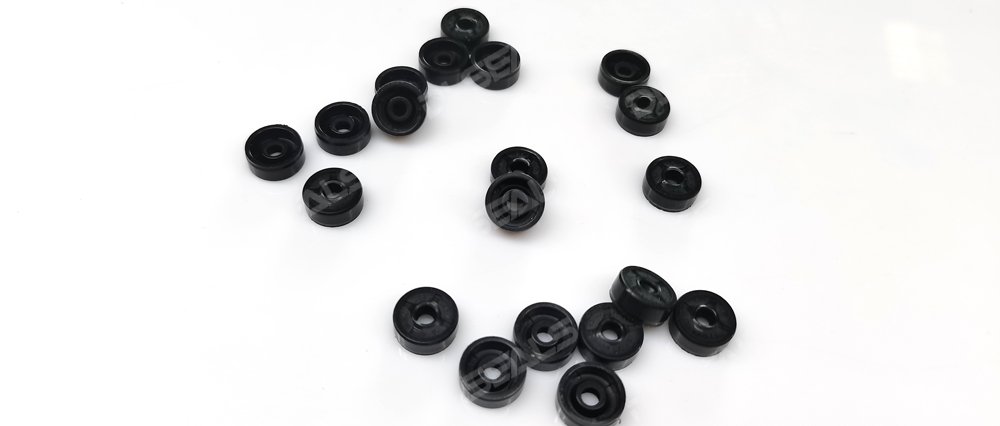When it comes to ensuring the longevity and reliability of outdoor equipment, neoprene rubber seals play a crucial role. These seals, known for their resilience and adaptability, are widely used across various industries for outdoor applications. This article delves into the durability of neoprene rubber seals, exploring their benefits, limitations, and why they are a preferred choice for harsh environments.
What is Neoprene Rubber?
Neoprene rubber, also known as polychloroprene, is a type of synthetic rubber that was first developed by DuPont in the 1930s. It is renowned for its excellent balance of properties, including flexibility, strength, and resistance to various environmental factors. Neoprene rubber is created through the polymerization of chloroprene monomers, resulting in a versatile material that can be tailored to specific applications.
Why Choose Neoprene Rubber Seals for Outdoor Applications?
**1. Weather Resistance:
Neoprene rubber seals are exceptionally resistant to a wide range of weather conditions. They can withstand extreme temperatures, from scorching heat to freezing cold, without losing their flexibility or integrity. This makes them ideal for outdoor applications where exposure to varying weather conditions is a constant.
**2. UV Resistance:
Ultraviolet (UV) radiation from the sun can degrade many materials over time, causing them to become brittle and lose their effectiveness. Neoprene rubber seals are designed to resist UV radiation, ensuring they maintain their performance and appearance even after prolonged exposure to sunlight.
**3. Water Resistance:
One of the most significant advantages of neoprene rubber seals is their water resistance. They are highly effective at preventing water ingress, making them suitable for use in environments where contact with water, rain, or moisture is frequent. This characteristic helps protect equipment and machinery from corrosion and damage.
**4. Chemical Resistance:
Neoprene rubber seals offer excellent resistance to a variety of chemicals, including oils, solvents, and acids. This makes them suitable for applications where exposure to harsh chemicals is a concern. Their chemical resistance ensures the longevity and functionality of the seal in challenging environments.
**5. Durability and Longevity:
Neoprene rubber seals are known for their durability and long service life. They maintain their properties under stress and strain, providing reliable sealing performance over extended periods. Their resistance to wear and tear makes them a cost-effective choice in the long run.
Limitations of Neoprene Rubber Seals
While neoprene rubber seals offer numerous advantages, it is essential to be aware of their limitations:
**1. Temperature Extremes:
Although neoprene rubber can handle a broad temperature range, it may not be suitable for applications involving extremely high temperatures or continuous exposure to temperatures above its rated limit.
**2. Ozone Resistance:
Neoprene rubber seals can be susceptible to ozone degradation over time, which can lead to cracking and deterioration. For applications with high ozone exposure, alternative materials may be required.
**3. Cost Considerations:
Neoprene rubber can be more expensive than some other sealing materials. While its benefits often outweigh the cost, it is essential to consider the budget constraints of your project.
Applications of Neoprene Rubber Seals
Neoprene rubber seals are utilized in various outdoor applications, including:
Automotive Industry: Sealing components in vehicles exposed to weather and environmental conditions.
Construction: Providing seals in building structures, windows, and doors.
Marine Industry: Protecting equipment and machinery from saltwater and other marine elements.
Industrial Equipment: Ensuring reliable sealing in machinery used in outdoor environments.
Conclusion
Neoprene rubber seals offer exceptional durability and performance for outdoor applications, making them a popular choice for a wide range of industries. Their resistance to weather, UV radiation, water, and chemicals ensures that equipment and machinery remain protected and functional. While they do have limitations, their overall benefits make them a valuable component in maintaining the integrity and longevity of outdoor equipment. By understanding the properties and applications of neoprene rubber seals, you can make informed decisions to enhance the durability and reliability of your outdoor setups.
For further information on neoprene rubber seals and their applications, feel free to contact our experts or explore our range of sealing solutions designed to meet your specific needs.
Post time: Jul-27-2024

